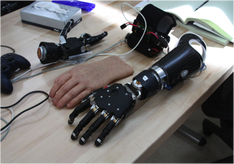 By Angie Miller Like working in a lab? Analytical? Communicate well? Team player? Biomedical engineers are a branch within the engineering field. The growth increase for biomedical engineers in the next ten years is about average at 3-6%. The median salary of a biomedical engineer in the United States is $90,580. From designing, testing, postulating, and reporting, biomedical engineers apply their solving skills to improve products in daily life. Work environment for biomedical engineers is usually a standard 40-hour week in an office building, laboratory, or industrial plant. Biomedical engineers may work longer hours when deadlines are involved. Generally biomedical engineers conduct experiments, develop statistical models, prepare reports, and devise plans for further improvement and action. Education for biomedical engineers consists of a variety of natural sciences including physics, chemistry, and biology along with mathematics. Usually biomedical engineers require a Bachelor’s degree for entry-level positions. For upper-level positions such as teachers or research, graduate degrees are required. Engineers that are directly involved with the public have to become licensed. With the changing technology, biomedical engineers must continue to educate themselves. Personality skills that are important for biomedical engineers include curiosity, great ability to solve problems, and working well with others. Similar careers to biomedical engineers are chemical engineers, biochemists, and biologists. http://www.sciencebuddies.org/science-engineering-careers/engineering/biochemical-engineer#keyfactsinformation
0 Comments
Leave a Reply. |
WELCOME, UMICH SCIENTISTAS!
CAMPUS PICS
WHAT'S NEWUPCOMING EVENTSPAST POSTS
October 2022
SORT BY TAG |
The Scientista Foundation, Inc. All Rights Reserved © 2011-2021 | Based in NY | [email protected]
The Network for Pre-Professional Women in Science and Engineering
The Scientista Foundation is a registered 501(c)(3) -- Donate!
The Network for Pre-Professional Women in Science and Engineering
The Scientista Foundation is a registered 501(c)(3) -- Donate!


 RSS Feed
RSS Feed